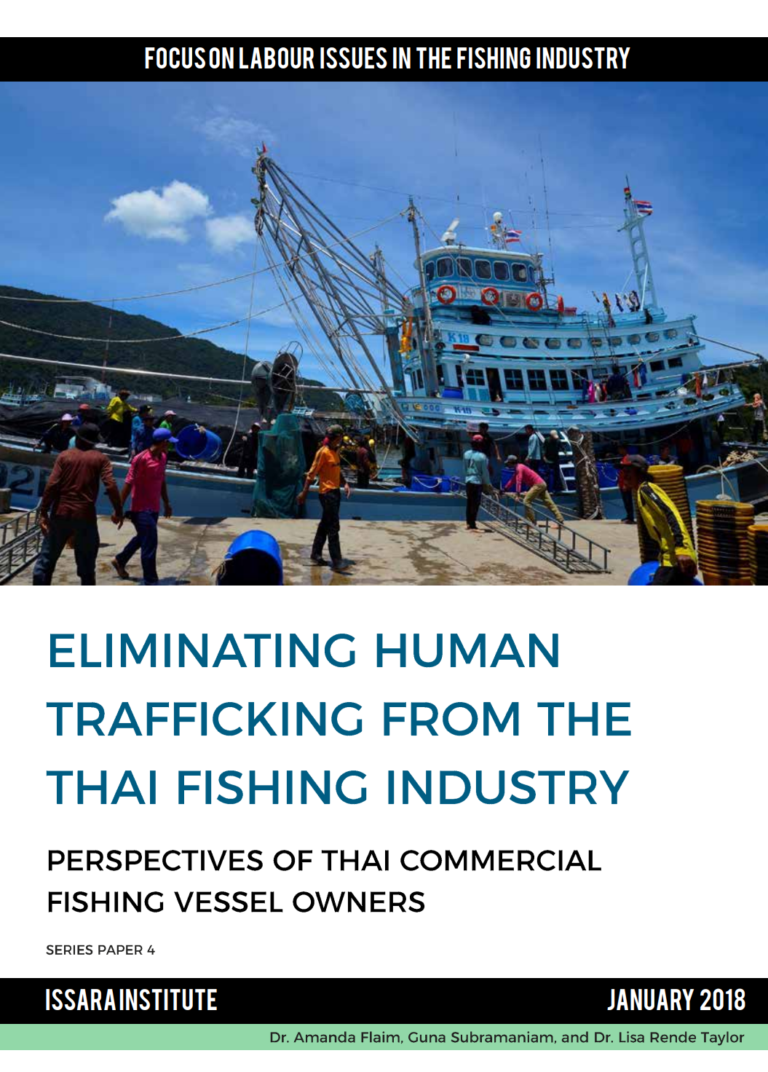Findings from this research expand current knowledge about the various reasons why trafficking and exploitation persist in the Thai fishing industry, despite various state and corporate actions to prevent and address it.
The main recommendation is to develop a ground- up and top-down collaboration involving businesses and government to pilot a a formal recruitment channel onto labour safe vessels in the Thai fishing sector. Developing a more stable, steady, and legal flow of workers, with strengthened safe guards for the welfare of migrant fishing crew, should be a high priority for both business and government alike.

